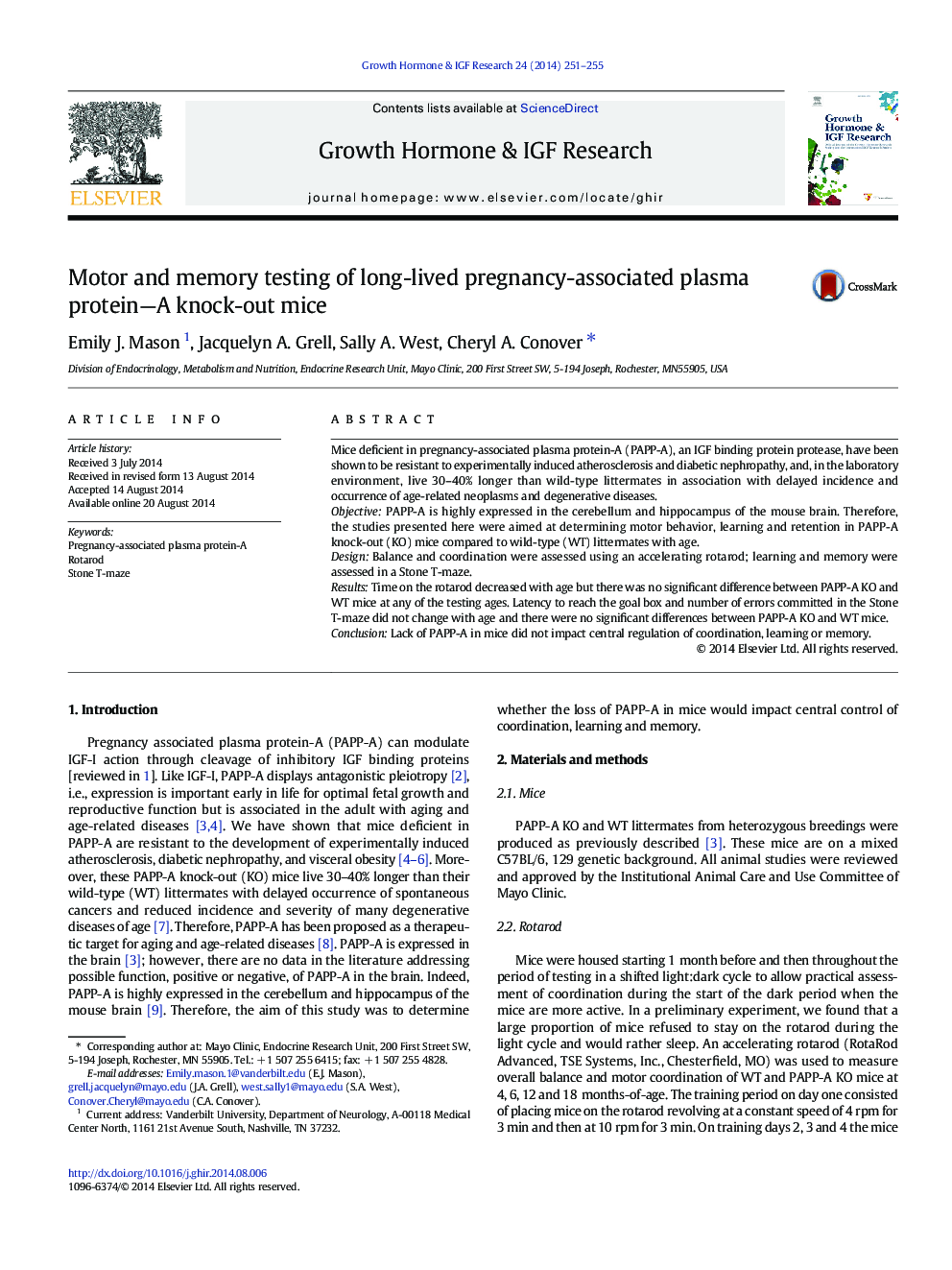| Article ID | Journal | Published Year | Pages | File Type |
|---|---|---|---|---|
| 2802494 | Growth Hormone & IGF Research | 2014 | 5 Pages |
•Pregnancy-associated plasma protein-A (PAPP-A), a protease in the IGF system, is expressed in mouse brain.•Deletion of PAPP-A in mice did not impact balance and coordination (rotarod).•Deletion of PAPP-A in mice did not affect learning and memory (Stone T-maze).
Mice deficient in pregnancy-associated plasma protein-A (PAPP-A), an IGF binding protein protease, have been shown to be resistant to experimentally induced atherosclerosis and diabetic nephropathy, and, in the laboratory environment, live 30–40% longer than wild-type littermates in association with delayed incidence and occurrence of age-related neoplasms and degenerative diseases.ObjectivePAPP-A is highly expressed in the cerebellum and hippocampus of the mouse brain. Therefore, the studies presented here were aimed at determining motor behavior, learning and retention in PAPP-A knock-out (KO) mice compared to wild-type (WT) littermates with age.DesignBalance and coordination were assessed using an accelerating rotarod; learning and memory were assessed in a Stone T-maze.ResultsTime on the rotarod decreased with age but there was no significant difference between PAPP-A KO and WT mice at any of the testing ages. Latency to reach the goal box and number of errors committed in the Stone T-maze did not change with age and there were no significant differences between PAPP-A KO and WT mice.ConclusionLack of PAPP-A in mice did not impact central regulation of coordination, learning or memory.
